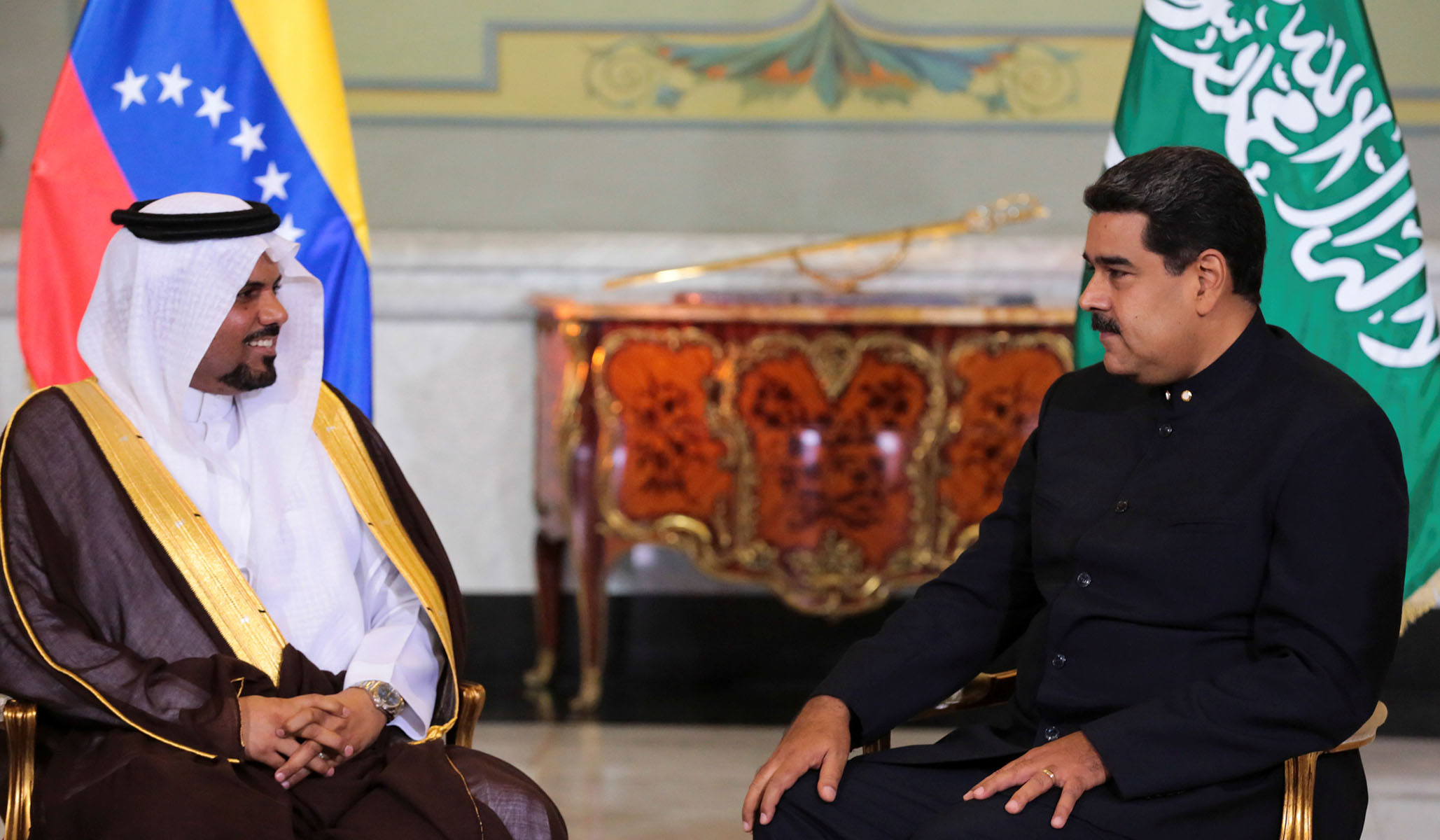


Last month, I detailed how Brazil’s President Lula invited Venezuelan dictator Nicolas Maduro on an official state visit, slamming U.S. Venezuela policy and offering Maduro support while he was there. Over the weekend, another state, this time a U.S. ally, worked to weaken Maduro’s pariah status.
On Sunday, Saudi Arabia welcomed Maduro on an official state visit. The Saudis gave no official reason for the visit, but this is the latest in a string of diplomatic overtures made by the kingdom to U.S. adversaries. The Associated Press reported:
The Saudis say they are pursuing their own national interests in a world increasingly defined by great power competition. Experts say the diplomatic surge is aimed at shoring up regional stability and improving the kingdom’s image as it seeks international investment for massive development projects.
The turn by the Saudis towards pursuing a foreign policy independent of the United States is a concerning trend, but not a new one. Just last week, Sahar Tartak wrote for National Review that, in coordination with China, Saudi Arabia, Iran, the UAE, and Oman would be forming a joint navy for Persian Gulf security. As she also noted:
Top Saudi and Iranian diplomats also met in China for the first time in over seven years in April, confirming the reopening of their embassies and consulates and resuming direct flights and visa facilitation for citizens.
The current administration’s policy of antagonizing the Saudi government has already driven Saudi Arabia towards China and away from the United States, as Noah Rothman noted in March. Now, seemingly, it seems to have driven the Saudis to embrace our adversaries in South America.
